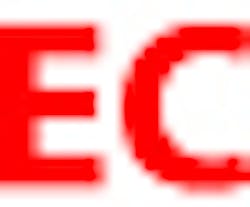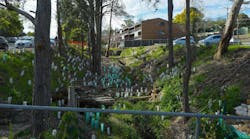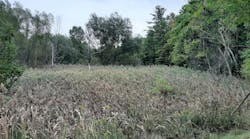Teamwork Pays Off As Great Lakes Chapter Steps Up Training Program
Responding to a growing need for practical information on tools and techniques for complying with NPDES erosion and sediment control requirements at construction sites, IECA’s Great Lakes Chapter is offering more training opportunities for members and non-members alike.
“We want to be a resource for outreach and educational services for professionals in both the private industry and the public sector by providing information, networking, and technical education activities for those involved with controlling erosion and sediment and managing stormwater runoff,” says Brett Bergefurd. The drainage engineer for Delaware County, located in the Columbus, OH, metropolitan area, he’s president of the Chapter, which includes Illinois, Indiana, Michigan, Ohio, and Wisconsin.
Certification Sessions
In July 2008, the Chapter teamed up with the Northeastern District of the Ohio Environmental Protection agency, the US Department of Agriculture’s Natural Resources Conservation Service, and Cleveland State University to provide the review course and the exam for the Certified Erosion, Sediment, and Storm Water Inspector (CESSWI) certification.
“It is a pilot project that we’d like to use as a template for providing this service to each of the other states in our region and to expand the training to include the CPESC (Certified Professional in Erosion and Sediment Control) and the Certified Professional in Storm Water Quality certification reviews and exams,” he says.
Joining together helped boost attendance, while reducing costs for each organization, Bergefurd notes. “There’s not a lot of erosion and sediment control training being conducted in our area of the country,” he says. “Educational activities like this can be a tremendous outreach tool for our Chapter to educate both sides of the fence—the regulators and the contractors, developers, and others covered by NPDES requirements. And one of those requirements is to provide erosion and sediment control training for employees.”
The Chapter received a grant from the Ohio EPA to help defray the cost of conducting future certification review and exam workshops. This allows the Chapter to work with various federal and state agencies to provide the training.
Seminar for Contractors
This past November 2008, the Great Lakes Chapter joined with the McHenry County Soil and Water Conservation District in northern Illinois to present a one-day training workshop and trade show for contractors and their employees.
The once-rural area is experiencing rapid commercial and residential development as the nearby Chicago area continues to expand. As a result, erosion and sediment control and stormwater management issues are becoming much more important, notes Alisa Peterson, with GETUM Inc., a Round Lake, Illinois, firm that represents manufacturers in the erosion/sediment control and oil/water separators (water quality units) industry. She volunteered to help organize the event for the Chapter after exhibiting for FLEXSTORM Inlet Filters manufactured by Inlet & Pipe Protection Inc. at the 2008 IECA Environmental Connection conference.
“It was such a great show that we wanted to learn more about the erosion and sediment control industry in our region, so I contacted the Chapter to help them in our area,” Peterson says.
She, John Roberson, Great Lakes Chapter treasurer, and Ed Weskerna, district manager with the McHenry County SWCD, which provided facilities for the workshop, lined up speakers and vendors and publicized the event. The training included a review of county erosion control and stormwater management regulations, a discussion of dewatering practices, winter shutdown procedures for construction sites, and techniques for installing various erosion and sediment control
products.
Help Wanted
Peterson’s support for the Great Lakes Chapter serves as an example for others to volunteer to help with Chapter activities, notes Bergefurd. “One of the challenges of our Board of Directors is keeping in touch with our members,” he says. “We need volunteers to help implement the Chapter’s ideas and plans. These plans include conducting a survey of our members, putting together a brochure for new members, and publishing a newsletter.”
For more information contact Bergefurd at [email protected].


